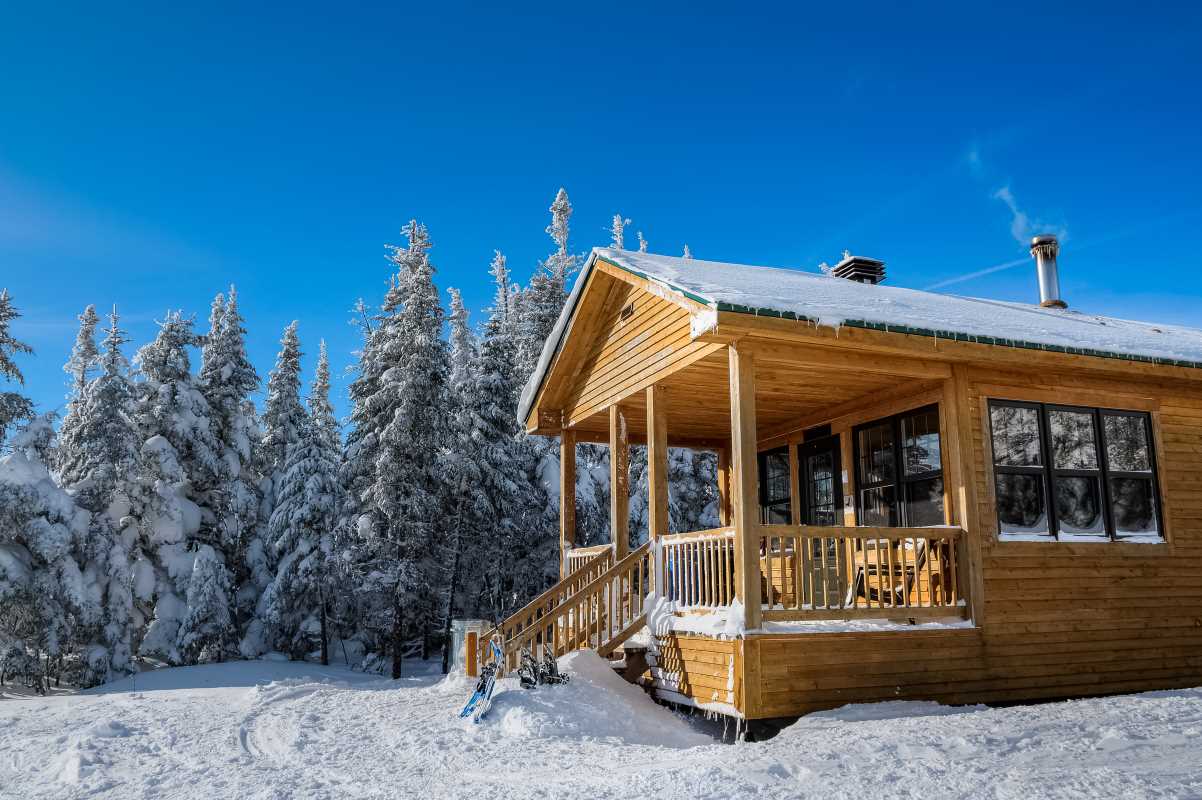There’s a growing movement changing the way people think about modern life. Off-grid living, once a fringe concept, is now gaining traction as more people seek a life of self-sufficiency, sustainability, and simplicity. Whether it's driven by a desire to minimize environmental impact, gain independence from public utilities, or simply slow down and connect with nature, the appeal of going off-grid has never been stronger. If you’re curious about this lifestyle, keep reading—read on to find out why off-grid living is booming and how you can do it.
Advantages of Off-the-Grid Life
1. Sustainability
With climate change and ecological concerns climbing to the top of global agendas, living off-grid offers a way to live more lightly on the planet. By harnessing renewable energy, reducing reliance on mass-produced goods, and growing food locally, off-grid households drastically lower their carbon footprint. It’s a lifestyle that aligns with the principles of sustainability—producing what you consume and wasting as little as possible.
2. Self-Sufficiency
The pandemic and various economic challenges have exposed vulnerabilities in supply chains, utilities, and financial systems. For many, this underscores the importance of self-reliance. Off-grid living provides a form of security—you produce your own power and food, manage your water supply, and are less dependent on external systems that can falter.
3. Simplifying Life
The modern world moves fast, and its endless noise and demands can feel overwhelming. Off-grid living offers the appeal of a slower, simpler lifestyle. Imagine waking up with the sun, spending your day tending to your garden or building something with your hands, and falling asleep under a canopy of stars. For many, stepping away from the chaos feels like stepping into freedom.
How to Transition to Off-Grid Living
If the off-grid lifestyle sounds appealing, you may wonder how to get started. Transitioning to this way of life takes thoughtful planning and effort, but with the right roadmap, you can make it happen.
1. Choose the Right Location
Location is everything when it comes to off-grid living. Some key factors to consider include:
- Access to Natural Resources: Look for a location with adequate sunlight for solar power systems and enough rainfall or access to water sources for daily needs.
- Climate: Mild climates make living off-grid easier, especially when it comes to heating, cooling, and growing food.
- Legal Considerations: Research local regulations about building permits, energy generation, and water usage to ensure you can live off-grid legally.
- Affordability: Remote areas are generally more affordable but may come with challenges like tougher logistics for receiving supplies or accessing healthcare.
Whether you want secluded woods, open plains, or rolling hills, your ideal location should align with your lifestyle goals.
2. Set Up Renewable Energy Sources
One of the cornerstones of off-grid living is generating your own electricity. Solar power is the most popular option due to its versatility and declining costs. Here's a quick breakdown:
- Solar Panels: Install a solar array to harness energy from the sun. Make sure to size your system based on your electricity usage.
- Wind Turbines: If you live in a windy area, wind turbines can be an excellent supplementary energy source.
- Backup Generators: Even with renewable energy, it’s wise to have a backup generator for emergencies or periods of reduced sunlight.
Investing in energy-efficient appliances and lighting will also help extend the reach of your power reserves.
3. Manage Water and Waste Systems
Living off-grid means taking full responsibility for water collection, storage, and waste management. Here’s how to get started:
- Water Collection: Rainwater harvesting is a viable solution for collecting water, especially in wetter climates. Pair it with proper filtration and storage systems to ensure water quality.
- Wells: On location with underground water sources, drilling a well is another option. Use a manual or solar pump for energy-efficient access.
- Greywater Recycling: Reusing water from sinks and showers for irrigation purposes reduces wastefulness.
- Composting Toilets: These toilets break down waste into compost, offering a sustainable and odor-free way to deal with human waste while conserving water.
4. Grow Your Own Food
Food production is a key element of self-sufficiency. Growing your own produce can provide healthy, organic meals year-round.
- Start with a Garden: Prepare a vegetable garden tailored to your local climate. Ideal beginner crops include tomatoes, leafy greens, carrots, and peppers.
- Plant Perennials: Include fruit trees and berry bushes for a dependable yearly harvest.
- Raise Livestock: Depending on availability and your diet, raising chickens for eggs or goats for milk can add variety to your nutrition.
- Preserve Your Food: Learn skills like canning, drying, or freezing to store surplus produce for the off-season.
With time and experimentation, your efforts can grow into a sustainable food source.
5. Build a Supportive Community
Off-grid living doesn’t have to mean going it alone. Creating or joining a network of like-minded individuals can make the experience more enjoyable and sustainable. Whether it’s sharing resources, swapping tips, or simply providing moral support, community can be an invaluable part of this lifestyle.
- Local Meetups: Search online for local off-grid or homesteading groups. These communities often organize events and workshops.
- Online Forums: Join forums and social media groups focused on off-grid living for advice and connections.
- Bartering and Sharing: Trading produce, tools, or skills with neighbors can help reduce costs and foster collaboration.
Challenges of Off-Grid Living (And How to Overcome Them)
While off-grid living comes with many benefits, it’s not without its challenges. Being prepared is key to overcoming them:
- Initial Costs: Setting up renewable energy systems and water systems may feel costly upfront, but they pay off over time. Start small and expand as your budget allows.
- Hard Work: From growing food to maintaining systems, off-grid living requires effort. Focus on building routines and learning new skills gradually.
- Isolation: The remoteness of off-grid locations can feel lonely at times. Make an effort to stay connected with friends, family, and any nearby communities.
Facing these challenges head-on will make your transition smoother and allow you to fully enjoy the rewards of this lifestyle.
Why Off-Grid Living Is Worth It
Off-grid living is more than a way of life—it’s a mindset. It challenges you to think creatively, adapt to new circumstances, and make mindful decisions about your resources. It empowers you to live intentionally, harmonizing with nature rather than competing against it.
For those who strive for independence, sustainability, and simplicity, off-grid living is not only viable—it’s rewarding. Every solar-powered light, every homegrown vegetable, every sip of harvested rainwater tells a story of resilience and innovation. It’s not just about living off the grid; it’s about reconnecting with the essentials of what it means to live well.







